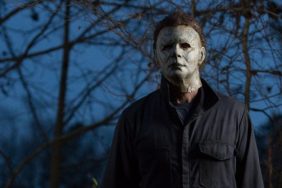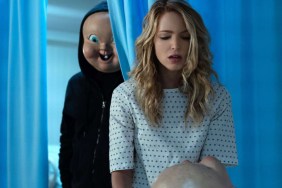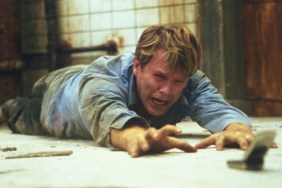South by Southwest, the annual film and music festival in Austin, Texas, seems the best possible place to delve into the movie musical and what makes them what they are (which begs the question why more aren’t screened there, but that’s a discussion for another day). To talk about exactly that topic, recent Academy Award-winning composer Justin Hurwitz hosted an evening of cocktails and song at the festival as he played various versions of the award-winning songs from Best Picture nominee La La Land and talked about how they came apart.
Relaxed and insightful, Hurwitz spoke with ComingSoon.net about his career and modern film music before the event.
ComingSoon.net: How do you like Austin? Is it your first time here?
Justin Hurwitz: Yeah it is. I’ve been dying to come; I keep hearing it’s like the most fun. I got in late last night; I’m trying to see as much of the festival today as I can.
CS: First off, big congratulations on the two Oscars well deserved.
Justin Hurwitz: Thank you.
CS: So that was going to be my jumping off part, La La Land itself. A big part of it is talking about art and holding onto the past too much; when you have major thematic elements in a film that are that tied to music and what you’re going to be composing, does that play a big part in what you’re going to write or do you try and do something more general? How does that work?
Justin Hurwitz: The number one goal of the score is that it is working emotionally, that it is working for the picture, doing what it needs to do in the scenes. But beyond that looking at it aesthetically – there’s what the story was, what Sebastian’s journey was definitely influenced the score in that Sebastian is all about having this tie to the past but also looking forward to the future. That’s his struggle. We wanted the score as well to have this inspiration in the past but not be something that sounded old fashioned, not to sound like something that could have been in a 1950s MGM musical. So that sort of balancing act between old versus new is something we tried to strike in the score and I think that’s reflective in the story of the movie itself.
CS: This makes two movies you’ve done with Damien [Chazelle] where jazz specifically is a big part of one of the main characters lives…
Justin Hurwitz: Three actually because in the first one — Guy and Madeline on a Park Bench — Guy was a trumpeter…
CS: That’s right! I’d forgotten.
Justin Hurwitz: That’s okay, most people have.
CS: In those movies, through the characters, jazz is a very important part of the film and transforms into those specific soundtracks. Is that something you’re still pursuing? Or now that you’ve had a chance to develop it through a couple of really good soundtracks, are you thinking other sounds and other ways you want to pursue music?
Justin Hurwitz: No, I’m actually very specifically looking to get away from jazz and maybe musicals for a while – at least jazz. I think Damien and I bonded over a mutual love of jazz and old-fashioned music and a lot of our favorite artists and composers in the past. But I’m looking forward to doing something very different for Damien’s next movie, for starters. It’s going to need to be something very different; a weird, dark score I think. And that’s the kind of thing I’m looking forward to doing with Damien. He’s looking forward to it as well – he’s looking to get away from jazz movies for a while.

CS: Any ideas what sort of sounds you’re looking at? Are you going to completely surprise everyone with the next one – go all electronica so everyone goes ‘it was that guy’?
Justin Hurwitz: [Laughs]. It’s going to be very, very different. I think it will still be me and I think it will still be Damien. We think about scores a certain way, how they function in a movie, but it will be sonically and aesthetically very, very different than anything I’ve done.
CS: Are you still looking mainly at film composing or doing some work outside that – music for itself or the theater or something?
Justin Hurwitz: I’d love to do theater at some point; I’d love to maybe do concert music at some point. I haven’t taken any steps towards that yet.
CS: Now that you’re talking about pursuing new sounds, what are some influences of yours that people wouldn’t expect? What’s in your background that we don’t know about?
Justin Hurwitz: I really love The Social Network score, Reznor and Ross’s score – it’s all electronic and has a very simple, beautiful melody. It’s very sort of sonically audacious. I really love Gary Yershon’s Mr. Turner score, very impressionistic and atonal at times. I grew up in a classical musician’s home and going to the symphony and there are a lot of influences in that world as well, but those are probably not as surprising.
CS: One thing I’ve noticed about the scores you have done, and maybe it’s because like you said you were — not old fashioned but reaching back to something — the characters have themes and leitmotifs and melody which seems like something we’ve gotten away from in scores. They’re much more about mood and tone. Do you think that’s something we’re getting back to, what you do, or is it a blip on the radar?
Justin Hurwitz: I have no idea what the trend is going to be going forward. I know that Damien and I love melodies. We work very hard at the beginning of the process, almost before he makes the movie, figuring out what that melody or key melody is going to be. It’s obviously particularly critical for a musical; you have song melodies which need to be figured out before the movie shoots. But any other kind of movie that just needs a dramatic underscore like the one he’s going to make next, we start as early as possible figuring out what that key melodic material is just because melodies are so important to us. There are certain kinds of scores that melody doesn’t play as big a role, it’s more about tonal things and textural things and that’s great too, that’s a great way of scoring … I feel like most movies can support a melody of some kind even if it’s used very minimally. That’s sort of what I love about The Social Network score; it’s a very moody, sonically oriented score and yet it has that very simple piano motif that is just a really simple, beautiful melody.
CS: In the history of film, we have these great director/composer pairings where almost you can’t imagine the movie without the music – you have Spielberg and Williams or Hitchcock and Bernard Hermann – and you seem to really have that with Damien. What do you think makes that work?
Justin Hurwitz: I don’t know. I know with me and Damien specifically — and this may be the case for any other director/composer pair — we have a real appreciation for what the other one does and a real understanding of what the other one does. He knows what I do, what I can do, what I do best and what I can add to his movies and likewise I understand him very well as a storyteller and a filmmaker. So it makes it easy to combine what we do, our crafts, together because we understand what the other person is capable of and what they want to do and what our instincts are as storytellers going both ways. When I look at other composer/director pairs, like Williams and Spielberg or Hermann and Hitchcock, I always feel like they’re sort of in synch aesthetically and the composer is adding something to the movie that becomes kind of inextricably tied to the movie in a way that doesn’t happen in a composer for hire situation. When you think of Spielberg’s movies or you hear those themes outside the movie, when you hear the E.T. theme outside of the movie you immediately think of the movie, Jurassic Park, any of those. The music is tied to the movie in a way that, it just belongs to the movie. I guess that’s the best way to put it. It feels like the movie and evokes the movie and I think that again has to do with composer and director being so in synch and working towards a singular vision.

CS: Is that something you’re thinking about and working towards when you’re actually composing or is it just sort of come out of the process?
Justin Hurwitz: It is in the back of mind that it’s important to me. Damien and I both want, in the case of La La Land or any movie that we do, we want the main theme and other melodies, the score, the orchestrational language of the score, to be something where you could hear of it after you’ve seen the movie and think ‘that sounds like that movie’ or ‘that reminds me of that movie.’
CS: From what I’ve read, it seems you were involved musically with the films a good bit earlier than composers usually are. In La La Land obviously you have to be because there are songs which need to be written early, but even on Whiplash you were involved a good bit ahead of time and through some of the planning of the movie. Do you think that helps and that makes the score work more closely with the film and gives you a better idea of how to meld it with the movie?
Justin Hurwitz: Absolutely. I mean both of those films for practical reasons has to be that way – not just for La La Land, but Whiplash had pre-recorded music in it as well – that had to be figured out and recorded before the movie was shot. But any movie we do, including going forward into this next movie, any movie we do Damien’s going to want me figuring out those main themes and aesthetic choices before he makes the movie and I’m going to be wanting the same thing. I think for him he wants to know what those are and wants to have them in his head as early as possible as he’s making the movie. I think that helps him. And for me it’s important because it can take a very long time to find melodies – that is the hardest, most frustrating part by far. You never know how long that’s going to take. I can sit at the piano for weeks, months, forever – you just don’t know when you’re going to crack it. Melodies are really sort of the only mysterious part of the process. The rest you just have to put in the work, orchestration and the like, but melodies you never know when you’re going to come up with the right one. I don’t want to be boxed in and be in post-production and we’re recording the score in 8 weeks and I need to figure out a melody. I need to have the time to just sit at the piano for as long as it takes. So as soon as he knows he’s going to make a movie I start that process and I take as long as it takes and as soon as I crack it and we know that’s the theme, that’s the melody, then we can check that off the list and I can focus on all the other things like actually scoring the picture dramatically and making all those aesthetic choices.
CS: It almost sounds less like the filmmaking process but that you’re writing a song or an album than a movie.
Justin Hurwitz: That’s a good point. it’s almost like making music just for the sake of making music for the time being and I really like that because there’s scoring to picture is its own kind of challenge and process and I love doing that, but it’s also really fun just sitting at the piano and figuring out music for the sake of music. That is like doing an album or stage music which I haven’t done yet. Just making music without any other strings attached, it’s fun.
La La Land will be available on Digital HD April 11 and on Blu-ray and DVD on April 25.
(Photo Credit: Getty Images)
La La Land
-
La La Land

-
La La Land

-
La La Land

Sebastian (Ryan Gosling) and Mia (Emma Stone) in LA LA LAND.
-
La La Land

-
La La Land

-
La La Land

-
La La Land

-
La La Land

-
La La Land

-
La La Land

-
La La Land

-
La La Land

-
La La Land

Director Damien Chazelle and Emma Stone on the set of LA LA LAND.
-
La La Land

-
La La Land

-
La La Land

-
La La Land

-
La La Land

-
La La Land

-
La La Land

-
La La Land










